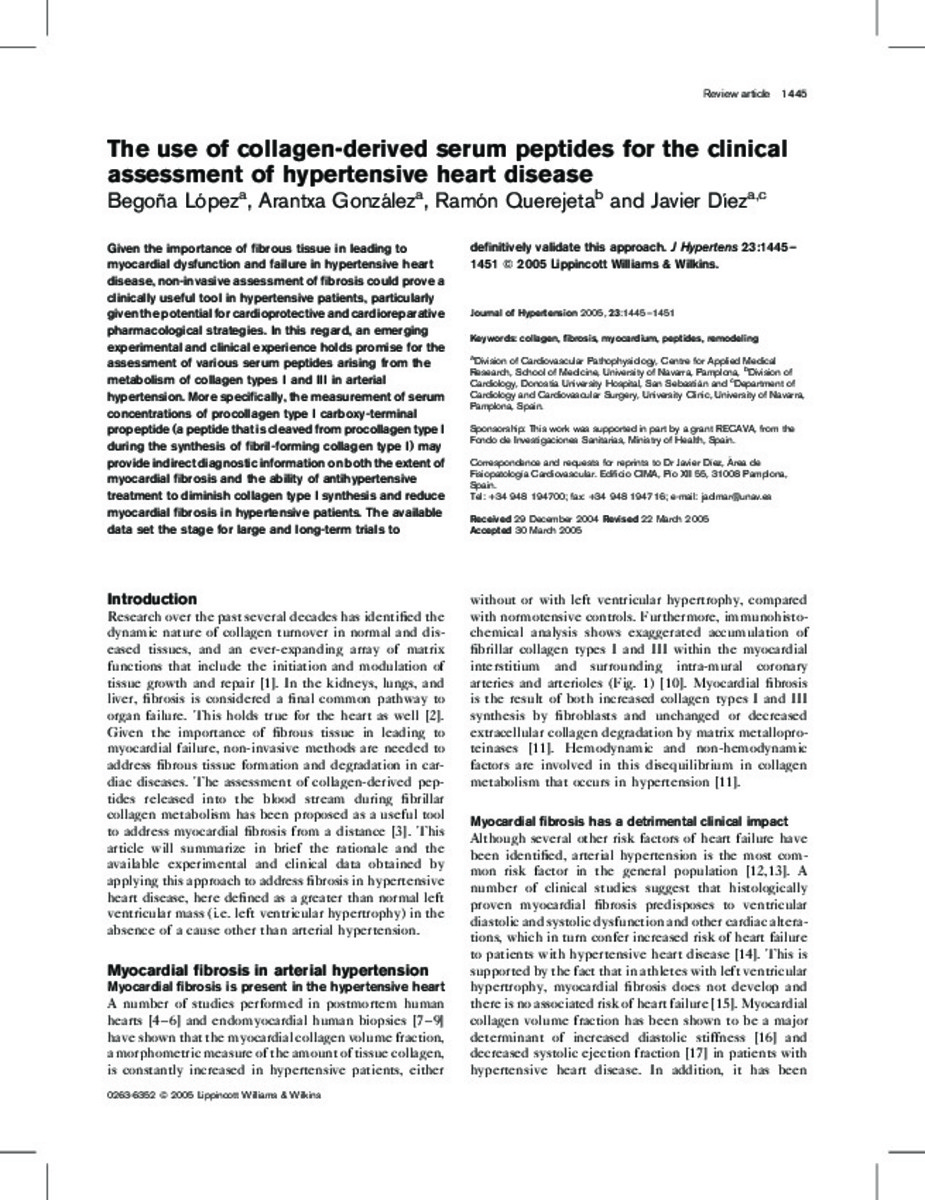The use of collagen-derived serum peptides for the clinical assessment of hypertensive heart disease
Keywords:
Collagen
Fibrosis
Myocardium
Peptides
Remodeling
Publisher:
Lippincott, Williams & Wilkins
Citation:
Lopez B, Gonzalez A, Querejeta R, Diez J. The use of collagen-derived serum peptides for the clinical assessment of hypertensive heart disease. J Hypertens 2005 Aug;23(8):1445-1451.
Statistics and impact
0 citas en

0 citas en

Items in Dadun are protected by copyright, with all rights reserved, unless otherwise indicated.










